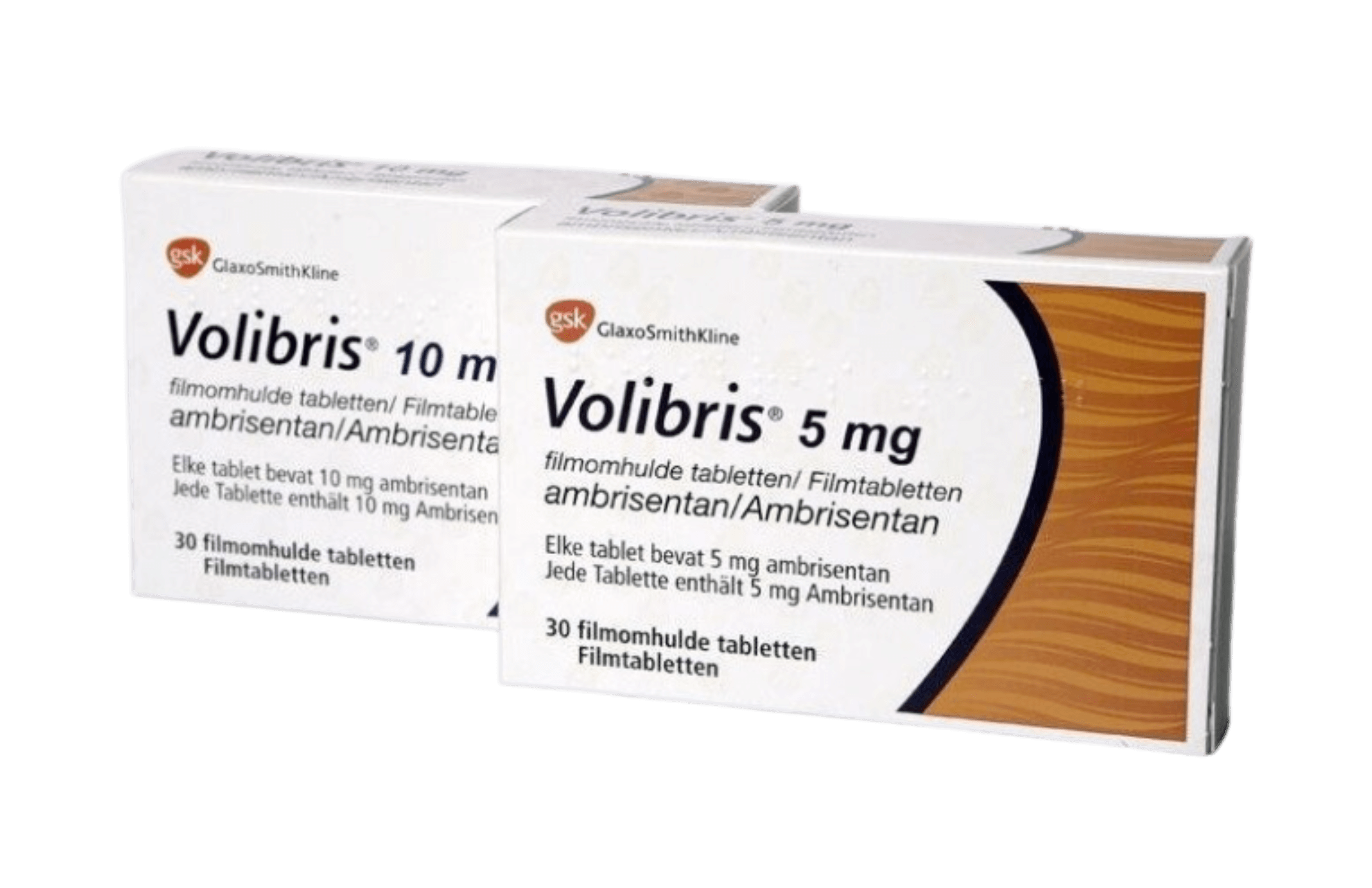Letairis (generic name:
ambrisentan) is an
endothelin receptor antagonist prescribed to manage
pulmonary arterial hypertension (
PAH), a condition involving high blood pressure in the arteries of the lungs. By blocking
endothelin‑A receptors, it helps relax and widen pulmonary blood vessels, easing the heart’s workload and improving blood flow. This can enhance a person’s ability to exercise and may slow the progression of PAH symptoms over time.
Letairis is available in oral tablet form and is sometimes prescribed alone or in combination with other treatments, such as
Cialis, to further reduce the risk of hospitalization and disease progression.
This medication is not approved for children and is dispensed only under a strict safety program. Because Letairis can cause serious birth defects, women who are able to become pregnant must have monthly pregnancy testing, use two reliable forms of birth control during treatment, and continue contraception for one month after stopping.
Usual Dosage
It is important to follow the dosage instructions printed on the label of the box. Check with a doctor or pharmacist if there are any doubts regarding the proper dosage and treatment regimen.
Letairis is taken
by mouth once daily. It can be taken with or without food, but should be swallowed whole,
not split, crushed, or chewed.
If a dose is missed, take it as soon as remembered that same day, then resume the regular schedule. Do not take two doses at the same time.
Doctors may adjust the dose based on individual response or other medications being used.
Storage
Letairis should be stored at
room temperature between 20-25 °C (68 -77 °F). Short-term exposure to slightly cooler or warmer temperatures is acceptable. Keep the tablets in their
original packaging until it is time to take them. Do not store in the bathroom or other humid areas.
The medication should be kept
out of reach of children and
not shared with others. Dispose of expired tablets according to local guidelines rather than throwing them into household trash.
This text is for informational purposes only. Please consult a doctor or pharmacist before using any medication.
The information leaflet that comes with the medication includes full information about the possible side effects. Be sure to read and understand these, and if there are any questions, discuss these with a healthcare provider or pharmacist before starting treatment.
Cautions
If a sudden allergic reaction (anaphylaxis) occurs shortly after taking Letairis, with symptoms like swelling of the face, tongue, or throat making it difficult to breathe or swallow, or there is wheezing, hives, rash, blistering, or peeling of the skin, call a doctor or 911 right away, or go to an emergency room immediately.
Pregnant women should not be using Letairis unless this has been discussed with a healthcare provider, as it might harm the unborn baby or pose a risk of miscarriage. For this reason, women planning to become pregnant should use appropriate birth control measures during the treatment and one month after taking the last dose of Letairis.
Letairis may pass into breast milk, and mothers should consult with a doctor if already feeding or planning to feed an infant.
Most people who use Letairis do not experience any adverse side effects. Doctors prescribe this medication because they assess the benefits of such treatment outweigh any likely unwanted effects.
Some of the side effects that have been reported include:
- Swelling of hands, legs, ankles, and feet
- Nasal congestion or sinus irritation
- Hot flashes or facial redness
Not all side effects are listed here. If these or other unlisted symptoms persist or worsen, consult a healthcare provider.
Letairis is approved for the treatment of pulmonary arterial hypertension (PAH), a rare condition where the arteries in the lungs become narrow and stiff. This narrowing increases the pressure inside the pulmonary arteries, forcing the heart to work harder to pump blood through the lungs. Over time, PAH can cause shortness of breath, tiredness, chest pain, swelling in the ankles or legs, and reduced ability to exercise.
By blocking endothelin‑A receptors, Letairis helps these blood vessels relax and widen. This lowers pulmonary blood pressure, helps ease strain on the heart, and can improve exercise capacity.
When taken with Cialis, Letairis may further lower the chance of PAH worsening or leading to hospitalization.
Letairis is not approved for any other conditions. It is not known to be safe or effective for children, and it must not be used in anyone who is pregnant because of the high risk of birth defects.
Because of these serious risks, the medication is dispensed only through a restricted safety program that ensures patients understand the pregnancy testing and birth control requirements before starting therapy.










